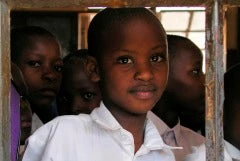
Are all Tanzania children really going to school?
Over the past decade, Tanzania has been close to reaching almost its universal primary education targets according to official statistics. However, when Tanzanian households were asked directly in recent surveys, they reported that:
- 17% of their seven to thirteen year-olds were not attending school
- 30% of the seven or eight year-olds in rural areas were not attending school and as much as 45% for those in the poorest quintile
- 45% of those of the seven or eight year-olds not attending school in the rural areas are among the poorest people
- About 1/3 (400,000) of the 1.2 million seven-year-olds are out of school, with rural boys less likely to go to school than girls.
Those responses warrant a number of questions:
- Are government education statistics inflated?
- Why are children not going to school when they reach seven?
- Are children officially registered but not attending school?
- Does the discrepancy between official and survey statistics reflect quality issues in the education system?Indeed, according to surveys that tested Tanzanian children, results for students in standard 4 show that only 47% could read a standard 2-level Kiswahili story and a mere 15% could divide 75 by 5.
- Why are so many Tanzanian children not learning?
Tell us what you think in the comments section below.
Note: The statistics above are computed using data from the Demographic and Health Survey, the Uwezo survey, and the Service Delivery Indicator survey all done in 2010. Data from these surveys are publicly available and results can be readily replicated.



Join the Conversation